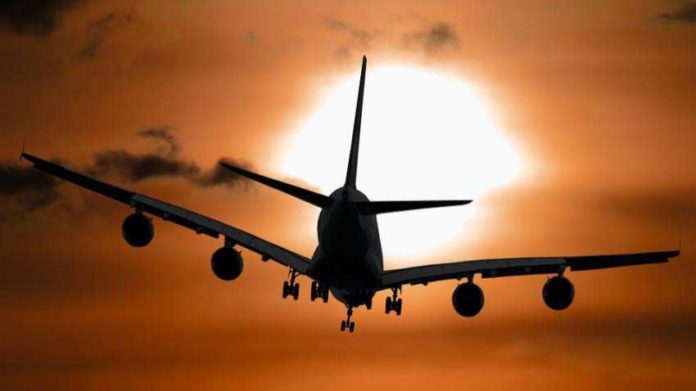SEOUL: Global airlines slashed a widely watched industry profit forecast by 21 per cent on Sunday as an expanding trade war and higher oil prices compound worries about an overdue industry slowdown.
The International Air Transport Association (IATA), which represents about 290 carriers or more than 80 per cent of global air traffic, said the industry is expected to post a $28 billion profit in 2019, down from a December forecast of $35.5 billion.
“Airlines will still turn a profit this year, but there is no easy money to be made,” IATA Director General Alexandre de Juniac said at the group’s annual meeting in Seoul.
“Creeping protectionist or isolationist political agendas are on the rise,” he added.
Global stock markets tumbled on Friday after US President Donald Trump’s unexpected threat of tariffs on Mexican goods added to fears that escalating trade tensions will push the United States and other major economies into recession.
Airlines had reported $30 billion in annual profits in 2018, but conditions in the air cargo market – an extra source of revenue for carriers – have weakened substantially.
“You see that international trade is now at a zero growth rate, so there is an immediate impact on our cargo business,” de Juniac told Reuters TV.
IATA voiced concerns the trade tensions, which have forced several carriers in Asia to ground or delay taking delivery of air freighters, could spill into the passenger market.
Passenger capacity growth, which reached 6.9 per cent in 2019, is forecast to slow to 4.7 per cent this year, with average fares flat following a 2.1 per cent decline in 2018.
The dip is potentially significant because airline profits track consumer confidence and global trade, economists say.
After struggling to inspire confidence for decades due to high fixed costs that are mainly out of their control, airlines have managed to cover the cost of their capital in recent years by squeezing their expenses and carrying out some restructuring.
But analysts have said that aviation is nearing the end of an extended business cycle.
The sector’s heavy reliance on one region, North America, for half of the global profits prompted leading consultant Peter Harbison to warn airline CEOs from the floor of the IATA meet that the industry’s good fortunes were a “temporary aberration”.
The industry’s growth continues to be stimulated by low fares, but such travel tends to be most vulnerable in a downturn, Harbison told Reuters.
In a $900 billion cut-throat industry brimming with tensions, the head of Germany’s Lufthansa hit out at low-cost airlines who slash fares to what he called unrealistic levels, though those firms say legacy carriers are bloated.
“I’m not complaining about the competition. Don’t get me wrong … but that kind of ticketing below 10 euros is hurting the … trust of public and politicians (and) congesting air traffic,” CEO Carsten Spohr said.
The practice also undermines climate goals by spurring trips that would not otherwise exist, he added.
Europe could see more airlines disappear after a series of failures through mergers or bankruptcies.
“We have just begun to see the beginning of it,” he said.
The CEO of the recently acquired UK-based Flybe said she saw a risk of “massive consolidation without independent and challenging carriers”.
Christine Ourmieres-Widener plans to step down on July 15, months after the sale of the low-cost airline to a consortium including Richard Branson.
Airbus said on Sunday it was receiving some requests to defer plane orders but denied the aviation market had cooled.
“I put it in the category of a discreet event more than a global phenomenon at this point. My impression is not that the tide has turned,” said sales chief Christian Scherer.
The planemaker is close to a deal to sell A330neo wide-body jets to Virgin Atlantic, people familiar with the matter said.




